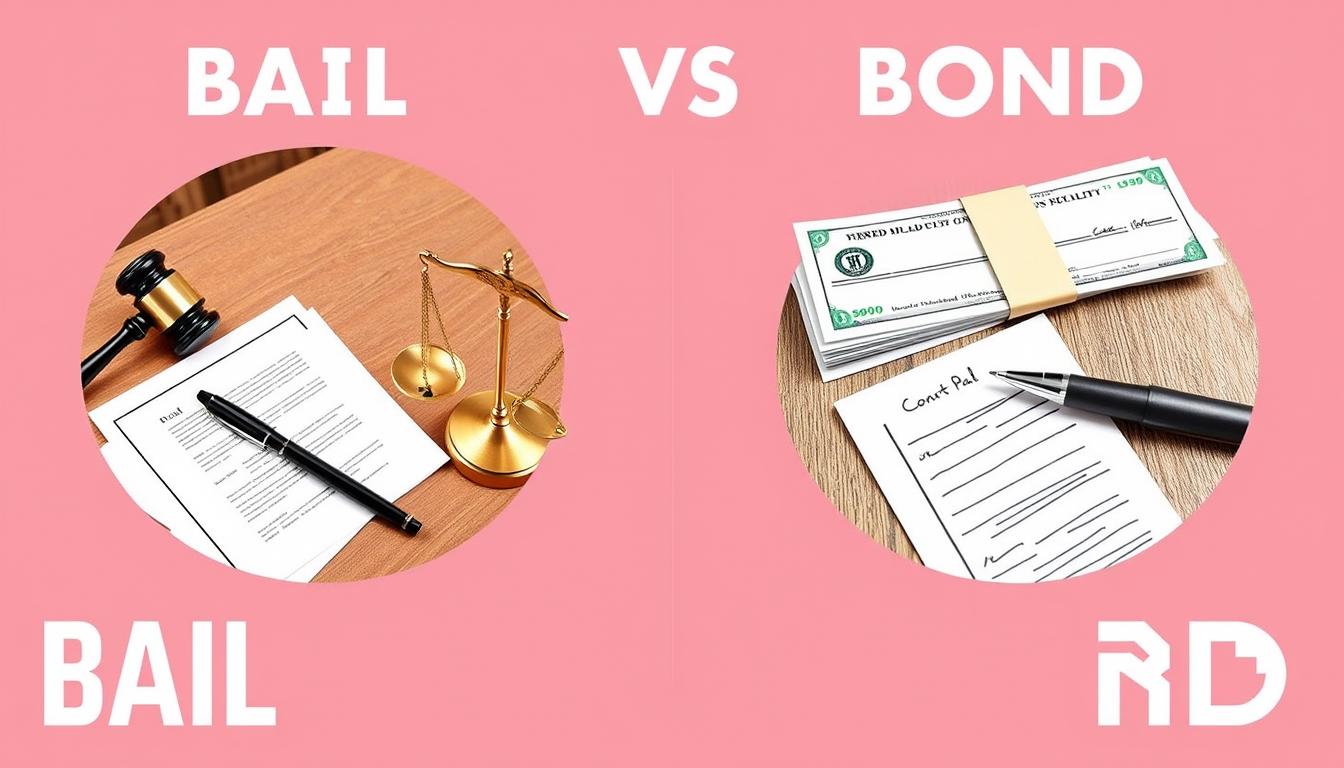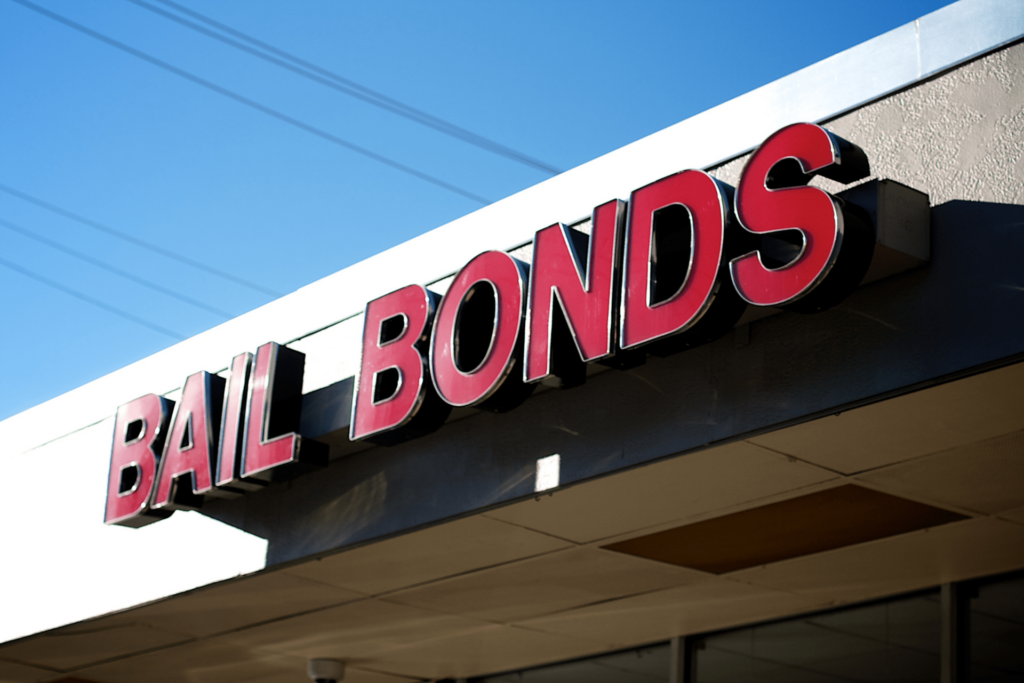Comprehending the Refine of Safeguarding a Bail Bond: What You Need to Know
Protecting a bail bond can be a complex procedure. It entails comprehending different elements, from the types of bonds available to the associated costs. People commonly neglect vital details that can affect their circumstance. The actions to get a bail bond call for careful consideration and understanding of responsibilities. As the process unfolds, essential choices should be made that might influence the outcome greatly. What should one prepare for when traversing this difficult landscape?
What Is a Bail Bond?
A bail bond is a monetary contract that permits a detained person to be released from custody while awaiting trial. This setup involves a 3rd event, normally a bondsman, that ensures the court that the person will return for their set up court looks. In exchange for this solution, the Bail bondsman generally charges a non-refundable fee, usually a percentage of the total Bail quantity.
Bail bonds serve an essential function in the legal system, giving a device for accuseds to maintain their liberty during the pre-trial phase. This can help them plan for their protection better. The Bail amount is figured out by the court based on numerous factors, consisting of the seriousness of the crime, the accused's criminal background, and the danger of trip. Eventually, a bail bond represents a dedication to copyright legal duties while permitting people the possibility to continue their every day lives till their court date.
Exactly How Bail Bonds Work
Bail bonds run via a simple procedure that involves several crucial steps. A defendant or their depictive calls a bail bond representative after an apprehension. The agent examines the scenario, including the Bail amount set by the offender and the court's background. Once a choice is made, the agent normally calls for a non-refundable fee, usually a percent of the complete Bail amount, often ranging from 10% to 15%.
After the fee is paid, the agent secures the Bail by signing an agreement with the court, making certain that the offender stands for all arranged court dates. If the offender fails to show up, the bail bond representative is accountable for the full Bail quantity, leading the representative to seek the offender. Throughout this procedure, the bail bond agent plays an important duty in assisting in the launch of the offender while handling the connected financial threats.
Kinds Of Bail Bonds
Understanding the different kinds of Bail bonds is necessary for accuseds and their households as they navigate the legal system. There are numerous common sorts of Bail bonds available, each offering a details objective.
The most prevalent is the guaranty bond, which includes a bondsman ensuring the complete Bail quantity in exchange for a charge. One more type is the cash bond, where the offender or their family pays the full Bail amount in cash money straight to the court.
Residential or commercial property bonds enable individuals to utilize realty as security for the Bail amount. In addition, federal bonds specify to government cases, often requiring a higher costs and extra strict conditions.
Migration bonds are utilized in situations concerning migration offenses. Each sort of bond has distinct treatments and effects, making it essential for those entailed to understand their choices thoroughly.
The Prices Entailed in Protecting a Bail Bond
Securing a bail bond requires various expenses that can greatly influence a defendant's funds. The primary cost is the costs, normally ranging from 10% to 15% of the overall Bail quantity set by the court. This costs is non-refundable, no matter the instance result, representing the bail bond agent's charge for their services. Added costs might include management charges, which some representatives impose for processing documents, and security needs, where the defendant might require to offer assets to secure the bond. In situations involving higher Bail amounts, the demand for collateral comes to be much more pronounced. bail bonds. Defendants must be mindful of prospective expenses connected to missed court dates, which can lead to further monetary penalties. Understanding these costs is important for accuseds and their families, as they can considerably influence the financial problem related to safeguarding a bail bond
The Refine of Acquiring a Bail Bond
The procedure of obtaining a bail bond entails a series of organized steps that begin with the entry of an application. Applicants have to likewise take into consideration different settlement and collateral alternatives that may be required by the bail bond firm. Understanding these elements is vital for steering through the bail bond system effectively.
Application Entry Steps
When people are knowledgeable, navigating the application entry steps for obtaining a bail bond can be straightforward. The first action includes selecting a reliable bail bond firm, which usually needs study and referrals. When a firm is chosen, the candidate needs to complete a bail bond application, providing vital details such as the accused's details, costs, and Bail quantity. Next, the applicant may require to present recognition and any kind of pertinent documentation to support the application. After submitting the application, the bail bond company will assess the information and evaluate the danger included. If authorized, a representative will certainly lay out the conditions before finalizing the contract. This procedure, while methodical, can vary a little depending on the Bail and the jurisdiction bond company.

Settlement and Collateral Choices
When getting a bail bond, recognizing repayment and collateral alternatives is crucial, as these aspects can substantially impact the general expense and terms of the arrangement. Normally, bail bond firms need a non-refundable fee, typically a portion of the total Bail amount, which functions as their earnings. Some business might provide versatile layaway plan, bail a enabling clients to pay in installments. In addition, security can be necessary to protect the bond, which may consist of possessions like residential or commercial property, lorries, or various other valuables. The kind and value of collateral can affect the bond's authorization and terms. Clients ought to very carefully assess their economic circumstance and options to guarantee they pick a remedy that straightens with their budget and circumstances.
Duties of the Indemnitor
Steering through the intricacies of Bail bonds needs a clear understanding of the more info here responsibilities of the indemnitor. The indemnitor, often a relative or close friend of the accused, plays a significant role in the Bail procedure. This individual consents to presume financial responsibility, making sure that the Bail amount is paid if the defendant fails to show up in court. It is very important for the indemnitor to keep communication with the bail bond representative throughout the procedure, supplying any kind of required info and updates pertaining to the offender's circumstance.
Furthermore, the indemnitor must secure security, which may include residential or commercial property or prized possessions, to back the bail bond. This security shields the bail bond company against possible losses - bail bonds. Must the defendant stop working to adhere to court mandates, the indemnitor encounters the threat of losing their security and may be held answerable for the whole Bail quantity. Therefore, recognizing these responsibilities is crucial for the indemnitor's monetary stability

Usual Misconceptions Regarding Bail Bonds
Numerous people harbor mistaken beliefs concerning Bail bonds, which can complicate their understanding of the Bail procedure. One common myth is that Bail bonds are a type of repayment that guarantees an offender's launch. In fact, they are a guarantee to the court that the defendant will certainly stand for their set up hearings. An additional common idea is that just wealthy people can afford Bail. However, Bail bondsmen usually charge a percent of the overall Bail quantity, making it available to a more comprehensive variety of people. Furthermore, some individuals assume that Bail is refundable. While the costs paid to the Bail bondsman is not refundable, the Bail amount itself may be returned upon the completion of the case, offered the defendant fulfills all court requirements. Dispelling these misconceptions is necessary for individuals going across the intricacies of the Bail system and guaranteeing they resource make notified decisions.
Often Asked Questions
Can I Safeguard a Bail Bond for A Person in An Additional State?
Protecting a bail bond for a person in one more state is possible, but it usually requires collaborating with a Bail bondsman accredited because state - bail bonds. Each jurisdiction has specific guidelines that need to be adhered to throughout this process
What Happens if the Defendant Skips Bail?
A warrant is typically issued for their arrest if an offender misses Bail. The Bail bondsman might additionally seek recovery initiatives, which could involve working with fugitive hunter to capture the individual and situate.
Are Bail Bondsmen Managed by the Government?
Bondsman are without a doubt controlled by government authorities. Rules vary by state, however they normally need licensing, adherence to financial practices, and compliance with legislations to ensure reasonable treatment of offenders and their family members.
Can I Use Security Besides Money?
Collateral apart from money can often be made use of for Bail bonds, depending upon the bondsman's policies. Typical options consist of residential or commercial property, cars, or other useful possessions, which need to usually be appraised and agreed upon.
What Is the Duty of a Co-Signer in a Bail Bond?
The role of a co-signer in a bail bond is to guarantee payment if the offender fails to show up in court. This individual accepts financial responsibility, guaranteeing that the bail bond contract is maintained and enforceable.
If the accused fails to appear, the bail bond representative is liable for the full Bail amount, leading the representative to look for out the defendant. Once a firm is chosen, the applicant needs to finish a bail bond application, supplying crucial information such as the accused's details, fees, and Bail quantity. Normally, bail bond companies need a non-refundable fee, usually a percentage of the overall Bail quantity, which offers as their profit. Numerous individuals nurture misconceptions concerning Bail bonds, which can complicate their understanding of the Bail process. Security various other than cash can typically be used for Bail bonds, depending on the Bail bondsman's policies.